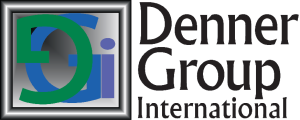Personal Vision, Practice Key to Career Success
By Eric Denniston, Managing Director, Denner Group International, September 2013
Takeaways: Focus on a Personal Vision and Outcomes. Combine strategic thinking with tactical thinking. How this can pay off. Who can help.
I rece ntly watched an episode of Chef Gordon Ramsey’s “Master Chef Junior” on Fox TV. In addition to being thoroughly impressed with the maturity and skill the 8 to 13-year olds displayed, I was also impressed that these young people in most cases had a very clear vision of what they wanted to do for work when they become adults. Few children that age have enough passion for something that they form a vision that drives them to pursue it.
ntly watched an episode of Chef Gordon Ramsey’s “Master Chef Junior” on Fox TV. In addition to being thoroughly impressed with the maturity and skill the 8 to 13-year olds displayed, I was also impressed that these young people in most cases had a very clear vision of what they wanted to do for work when they become adults. Few children that age have enough passion for something that they form a vision that drives them to pursue it.
Setting aside the circumstances under which these kids had to perform, what stands out is their focused drive and singular vision about what they want to do with their lives. And their performance proves the point that thinking carefully and with purpose about what you wish to accomplish is key to successfully doing so.
First, let’s consider the kids’ vision. Each one intends to become a master chef. Note that I say “intends to”, not “wants to”. There is a difference here. “Intends to” shows purpose, that it will happen, where as “wants to” simply indicates there is a vague sense of what could be possible. They have actually seen themselves as a chef in a major restaurant, perhaps owning it by themselves or with a family member. Thinking this way is perhaps the single most important first step in launching a successful and satisfying career.
These kids have obviously been seeking and getting feedback from accomplished cooks. Whether it has been from their parents, family friends or maybe even professional chefs they have met, they have certainly been told when they have done good and bad jobs. And they have made adjustments based on that feedback. They have likely sought out one or more mentors to both build their cooking skills and to understand the broader aspects of being a chef. Like running a restaurant, or food presentation techniques, or combining spices, flavors and textures, and how to experiment and when necessary, improvise when something goes wrong.
All the contestants recognize they are not professional chefs today; however, they are participating in a contest that provides them with an extraordinary opportunity to practice their craft and gauge their performance in a challenging environment. They are in fact taking stock of their current situation which will allow them to refine their actions as they move toward that vision of being a top-rated chef.
Will your chosen career path support the longer term vision for your life, like getting married, raising a family, living in a city or an environment that you desire, and ensuring your children get a good education? Is your chosen career likely to become stagnant or end due to changes in technology or government regulations, for example? Have you given this any thought?
Taking the time to think about a career in a disciplined manner is not easy. It’s not taught in school, not in a way that provides a simple framework for doing it. But if give extensive thought to answering five simple questions, and then take the appropriate actions, you will be on your way to achieving the results you want.
- Imagine and write down how your future looks 10 years from now – how it feels, where you’re working, where you’re living, etc.
- Create a list of no more than 10 goals which will help you determine if you’re on the right path and what deters you may need to make along the way.
- Take stock of your current situation by critically evaluating your current strengths and weaknesses and the opportunities and obstacles the future holds.
- Write down no more than five broad activities which you will need to undertake to reach your chosen vision – like additional training or education.
- Continually look for changes in your industry, the economy, and other areas that might affect your chosen career path and the implications they may present.
This suggested framework can help you have much clearer focus on your career, have plans that you can refer to and check up on to verify your progress, and have clearly stated actions that, when taken, will provide you with good feedback on the progress you are making towards your personal career objective.
